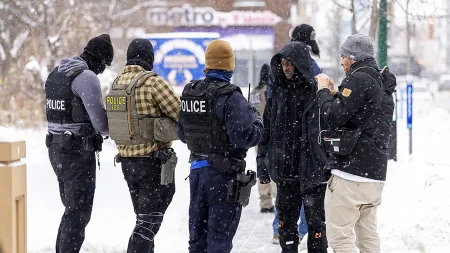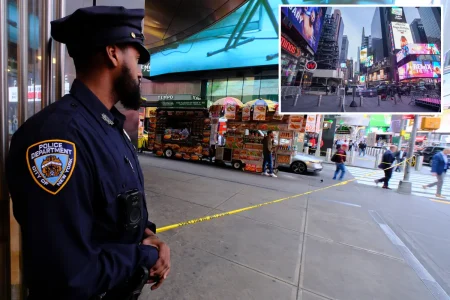The Gisèle Pelicot case, a landmark legal battle in France, centered around the horrific gang rape of a young woman, Gisèle Pelicot, over a period of two years. The subsequent trial, which resulted in the conviction of 51 men, exposed a deeply ingrained culture of sexual violence and impunity, sending shockwaves through French society. However, despite the legal victory, the case continued to generate controversy and public debate, particularly regarding the perceived leniency of the sentences and the societal attitudes that allowed such a crime to occur. The Amazons of Avignon, a local feminist collective, emerged in the aftermath of the trial, determined to amplify the voices of the victim and challenge the prevailing narratives that minimized the gravity of the crime. Their actions brought renewed attention to the case and sparked a critical conversation about rape culture, victim blaming, and the need for systemic change.
The Amazons of Avignon launched a bold campaign of public awareness, choosing a particularly impactful tactic: plastering the walls of Avignon with excerpts of testimony from the trial. This act of public dissemination transformed the city’s landscape into a stark reminder of the brutal reality of sexual violence. The testimonies, raw and unfiltered, offered a chilling account of the sustained abuse endured by Gisèle Pelicot. By making these accounts publicly visible, the Amazons forced the community to confront the uncomfortable truth of the case and challenged the collective amnesia that often surrounds such traumatic events. This unconventional approach, akin to a public art installation with deeply political undertones, aimed to break the silence surrounding sexual violence and reclaim the narrative from the dominant discourse that often marginalizes survivors’ experiences.
The impact of the Amazons’ action was multifaceted. Firstly, it brought the harrowing details of the case back into the public consciousness. While the trial had initially garnered significant media attention, the complexities and extended timeframe had gradually diluted public engagement. The Amazons’ intervention effectively reignited the public conversation, compelling residents to confront the uncomfortable reality of what had transpired within their community. Secondly, it provided a platform for Gisèle Pelicot’s voice, amplifying her experience and validating her suffering. By sharing her testimony, often verbatim, the Amazons ensured that her narrative, which had been subjected to scrutiny and skepticism during the trial, was heard clearly and unequivocally. This act of reclaiming the narrative was crucial in challenging the pervasive culture of victim-blaming often prevalent in such cases.
Furthermore, the Amazons’ intervention acted as a catalyst for broader social reflection. The public display of the trial testimonies sparked discussions about the pervasiveness of sexual violence, the deficiencies in the legal system’s response, and the societal attitudes that contribute to a culture of impunity. The stark visibility of the testimonies forced individuals to grapple with the uncomfortable truths about rape culture and confront their own complicity, whether conscious or unconscious, in perpetuating such harmful dynamics. It challenged the societal norms that often silence survivors and minimize the impact of sexual assault. The campaign essentially transformed the city of Avignon into a living testament to the struggle against sexual violence, pushing the conversation beyond the courtroom and into the public sphere.
The decision to display the testimonies publicly, however, was not without controversy. Some argued that the Amazons’ actions were exploitative, potentially retraumatizing the victim and disrespecting her privacy. Others questioned the legality of their methods, raising concerns about freedom of speech and the potential for defamation. The debates surrounding the Amazons’ tactics underscored the complexities of addressing sensitive social issues in the public sphere. While their intentions were undoubtedly grounded in a desire for justice and social change, their methods raised ethical questions about the responsible use of highly sensitive information, especially within the context of ongoing trauma and recovery. The ensuing discussions, however, while sometimes contentious, ultimately contributed to a more nuanced understanding of the challenges inherent in advocating for survivors of sexual violence.
The actions of the Amazons of Avignon, while controversial, ultimately contributed significantly to the ongoing dialogue surrounding sexual violence in France. Their bold intervention challenged the status quo, forcing the community to confront uncomfortable truths and acknowledge the pervasive nature of rape culture. By reclaiming public space and amplifying the voices of survivors, they ignited a crucial conversation about accountability, justice, and the imperative of societal change. The Gisèle Pelicot case became more than just a legal battle; it became a symbol of the fight against sexual violence and a testament to the power of collective action. The legacy of the Amazons of Avignon lies in their unwavering commitment to challenging the structures of power that perpetuate such violence and their enduring efforts to ensure that the voices of survivors are heard, respected, and ultimately, instrumental in shaping a more just and equitable society.









